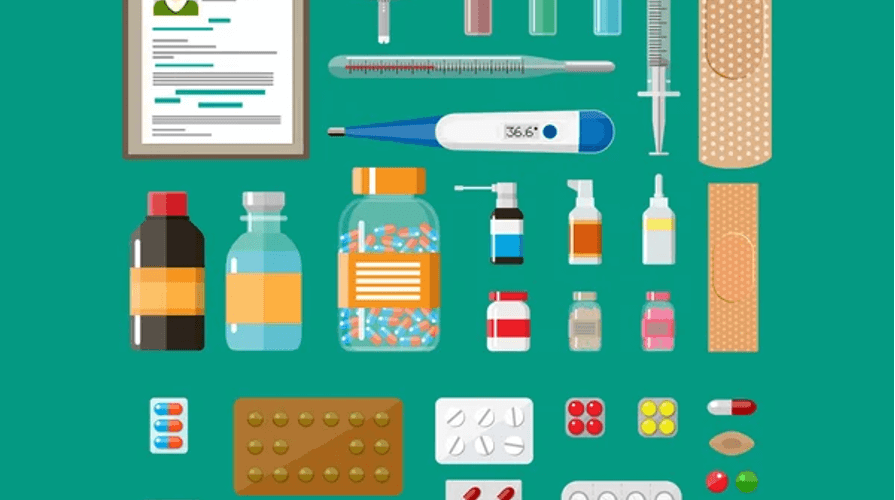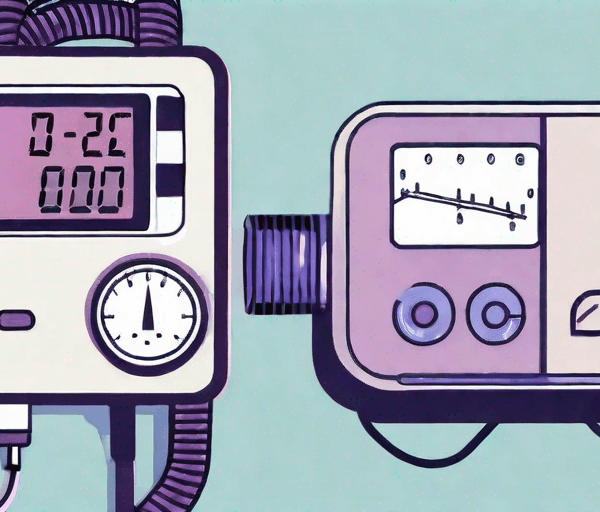It is a given fact that aspirin works its wonders on headaches, pain, and inflammation. But is it okay to take aspirin for hypertension?
It was debated throughout the years whether taking aspirin is appropriate when you have hypertension.
Overview
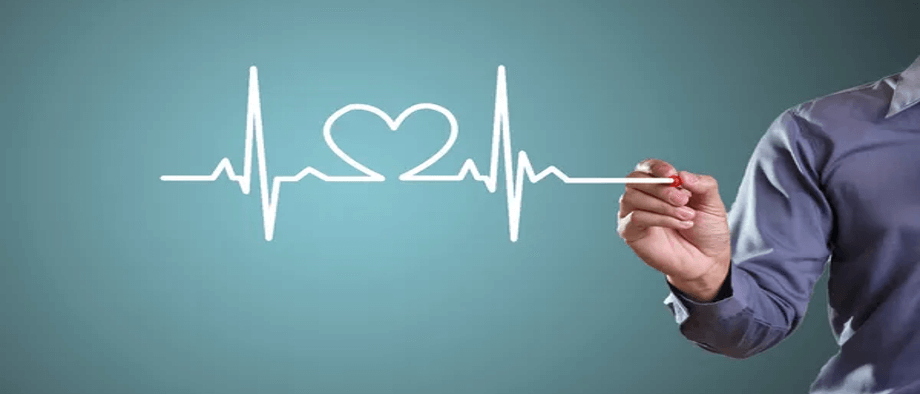
According to the world health organization (WHO), it was estimated that 17.9 million people died from cardiovascular diseases (CVDs) in the year 2019 making it the leading cause of death worldwide. Out of all the patients that died due to CVD, 85% were because of stroke and heart attack.
CVDs are diseases that involve the heart and blood vessels. Hence, it is important to treat high blood pressure also known as hypertension (which drives pressure to blood vessels) to reduce morbidity and mortality. The treatment impact of aspirin in the management of hypertension still remains a subject of interest with different clinical evidence.
How does aspirin reduce high blood pressure?

Aspirin promotes cardioprotection by preventing platelet aggregation. Platelet aggregation is a process where platelets stick to each other to form a clot. Say for example you have a wound; your body would naturally direct your platelets to clump together to stop the bleeding. Aspirin’s mechanism of preventing this is by inhibition of the cyclooxygenase-1 (COX 1) enzymatic activity. COX 1 synthesizes thromboxane A2 (TXA2) which is responsible for the platelet aggregation function. Additionally, the decrease in TX2 levels reduces the narrowing of blood vessels (vasoconstriction). Hence, when COX 1 is inhibited, platelet aggregation would not take place and would promote the widening of the blood vessels which would result in lower blood pressure.
And why do we need aspirin to prevent platelet aggregation?
As much as a blood clot would prevent you from bleeding, clots can also be stuck in the arteries which can obstruct the flow of blood to the organs.
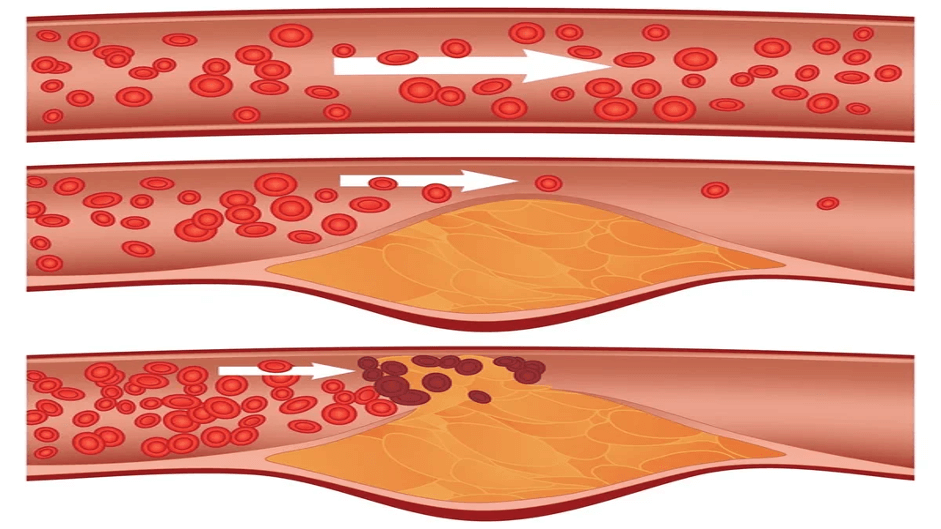
Since high blood pressure creates a high force inside the walls of a blood vessel, there may be a high chance of damage and rupture that would trigger the formation of blood clots. Blood clots can travel to veins and arteries in different organs and give rise to the following medical conditions:
- Pulmonary embolism – a blood clot that traveled to the lungs and obstructed an artery
- Coronary thrombosis – a blood clot that obstructed an artery in the heart
- Renal vein thrombosis – a blood clot in a vein in the kidney
- Stroke – a blood clot in the brain
While associating the use of aspirin together with antihypertensive medications is beneficial in the treatment management of hypertensive patients with high risk or had a history of cardiovascular diseases, this combination is not recommended for low to moderate risk hypertensive patients in which treatment benefit equals the harmful risk.
Other cardiovascular benefits of low-dose aspirin are reverse cholesterol transport, anti-inflammatory, pro-resolving effects, and endothelium-dependent vasodilation through the acetylation of COX-2 that leads to the production of aspirin-triggered lipoxins. It was also suggested that aspirin has antioxidant properties to combat oxidative stress, which damages cell tissues and causes inflammation.
What other uses does aspirin have besides being used as a health supplement for hypertension?
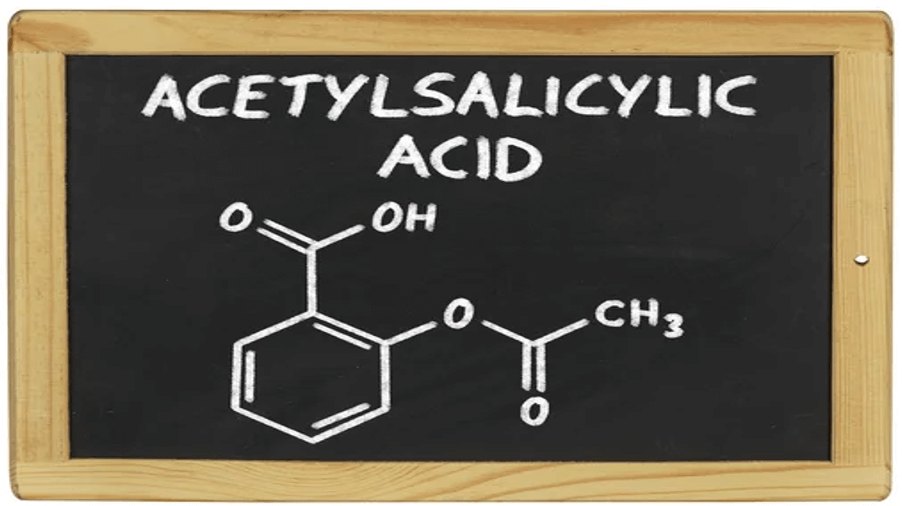
Aspirin also known as acetylsalicylic acid is the most commonly used medication for mild to moderate pain, fever, and inflammation. It can also be prescribed to relieve pain after surgery or a dental procedure.
Cyclooxygenase 2 (COX2) produces prostaglandins that are primarily responsible for pain signaling, fever, and tissue repair.
With a medium to a high dose of aspirin, the cyclooxygenase 2 (COX-2) pathway is inhibited and prevents it from producing prostaglandins which give this drug its analgesic, antipyretic and anti-inflammatory function.
Understanding how aspirin works
Ever wonder what your body does to a drug?
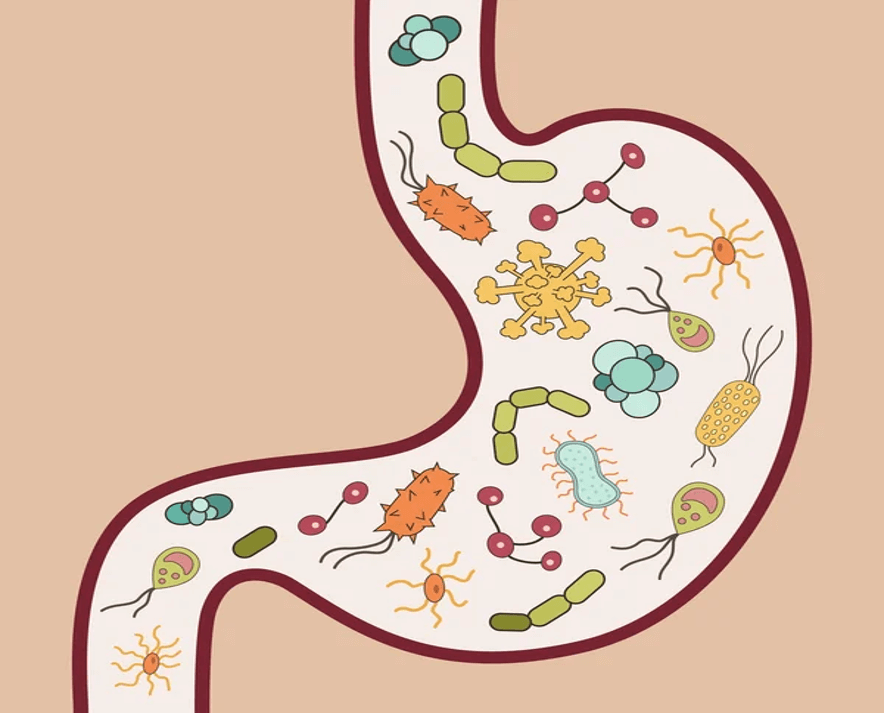
Upon taking aspirin, it is absorbed in the stomach and small intestine. The intravenous/injection/solution form of aspirin is being absorbed at a faster rate than the regular tablet form and is then distributed to body tissues and even crosses the placenta in pregnant women.
It is metabolized and broken down to salicylic acid. The bioavailability (the proportion of a drug that is absorbed and used by the body) of acetylsalicylic acid reaches a range of 40 – 50% of the treatment dose after oral administration.
The drug is then excreted in the urine and the excreted salicylates take 48 hours to be eliminated.
Recommended dosage and frequency
The regular dosage of aspirin to treat pain and fever is 0.3 to 1 gram, every 4 hours according to the medical condition and doctor’s advice, and up to a maximum of 4 g per day.
The dosage of aspirin for the long-term prevention of cardiovascular diseases such as myocardial infarction and stroke is 75–100 mg per day. Studies showed a higher reduction of blood pressure in hypertensive patients when aspirin is given at bedtime.
Acute or chronic aspirin/ salicylate toxicity may affect organ systems such as the central nervous system, pulmonary system, and gastrointestinal system in which severe bleeding may occur.
Always refer to the patient’s instruction leaflet included in your medication box for guided dosage administration. You can also confirm the dosage and frequency with your doctor and actively participate in patient counseling that discusses the drug’s administration, precautions, interactions, and common side effects conducted by pharmacists.
Administration of Aspirin
Different aspirin dosage forms are available in the market. There are different reasons and benefits in these formulations and routes of administration.
- Tablet – most commonly used due to its stability and acceptability. Examples of aspirin tablets are: Aspirin Adult Low Strength, Aspirin Low Dose, and Norwich Aspirin Maximum Strength.
- Film-coated tablets – coated with a thin layer of polymer designed to expose the tablet at the desired location in the stomach. Examples of film-coated aspirin tablets are: Aspirin Lite Coated, Bayer Aspirin Caplets, and Aspirin Microthin Coating
o Enteric- coated tablets – coated with polymers designed to have a delayed release in the intestine avoiding gastric fluid in the stomach. Examples of enteric-coated aspirin tablets are: Ascriptin Enteric Regular Strength, Aspirin Delayed-Release Tablets, and asprin.
o Extended-release tablets – designed to make aspirin last longer in the body. An example of an extended-release aspirin tablet is ZORprin.
- Tablet for solution – is another efficient means of ingesting the active ingredient by dissolving the tablet in water. An example of aspirin tablet for solution is Alka-Seltzer Effervescent Pain Reliever and Antacid (with citric acid 1 g and sodium bicarbonate 1.916 g).
- Chewable tablet – a palatable form of a tablet that eliminates the need for water and for easy swallowing. This type of dosage form works well for children. Examples of aspirin chewable tablets are Bayer Children’s Chewable aspirin, Aspirin Childrens, and St. Joseph Aspirin Low Strength Chewable.
- Medicated chewing gum – a newer type of dosage form that has an increased rate of effectiveness and doesn’t need water to drink. This can also help patients with problems in swallowing (e.g., after a tonsillectomy procedure). An example of aspirin-medicated chewing gum is Aspergum.
- Rectal suppository – delivers the medication and directly enters general circulation avoiding liver metabolism. An example of an aspirin suppository is Aspirin Suppositories – Consolidated Midland.
Cautionary questions before taking aspirin
Let your doctor know if have any of the following contraindications before taking aspirin:
- are you allergic to any of the contents of the medication?
- be cautious in taking aspirin if you have gastric ulcers, duodenal ulcers, kidney disease, or liver disease
- do you have an increased tendency to bleed (pathologically)?
- Are you pregnant or planning to be pregnant? There are certain doses of aspirin that are not to be taken during the first, second, and last trimester of pregnancy due to high risk of complications for both mother and baby.
- Are you currently taking other medications?
Drug-to-drug interactions
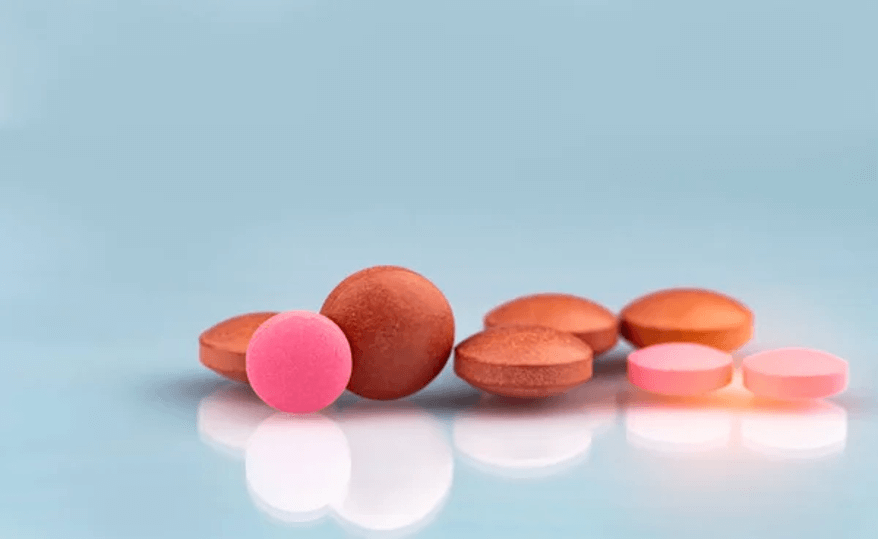
It is important to report all prescribed and over-the-counter medications to your doctor since medications react with one or two other drugs. As a result, your medication may increase or decrease in effect and cause harmful side effects.
There is clinical evidence that supports the negative interaction between aspirin and other antihypertensive medications such as angiotensin-converting enzyme inhibitors (ACEIs) and angiotensin receptor blockers (ARBs), and beta blockers while other studies showed that aspirin does not antagonize the blood pressure lowering effect of the said antihypertensive drugs.
Aspirin belongs to the non-steroidal anti-inflammatory (NSAID) drug category that is known to elevate blood pressure and may reduce the effect of antihypertensive medications. One study assessed the effect of low-dose aspirin (50–250 mg/day) on blood pressure in hypertensive patients on mono and combined antihypertensive therapy (including ACE inhibitors, beta-blockers, calcium antagonists, central acting agents, and diuretics). Patients who received aspirin showed a decrease in diastolic blood pressure compared to patients who were not using NSAIDS. Results showed that low-dose aspirin does not cancel the effect of antihypertensive medications.
Angiotensin-converting enzyme (ACE) inhibitor is an antihypertensive drug category that inhibits angiotensin II from causing high blood pressure. ACE inhibitors prevent the breakdown of bradykinin and stimulate prostaglandin where it gets its cardioprotective effects. Since aspirin inhibits the cyclooxygenase pathway, it then prevents prostaglandin synthesis which is an antagonistic effect to ACE inhibitors. A study investigated this kind of interaction and aimed to define the lowest aspirin dose that causes this counteraction with ACE inhibitors. Aspirin with a dose of 300 mg showed an antagonistic effect in patients treated with enalapril, nifedipine, and atenolol.
Other drugs that may increase the effect of aspirin are:
- Anticoagulants – coumarin and heparin
- Other drugs that inhibit platelet aggregation – ticlopidine and clopidogrel
- Other drugs for pain and inflammation – NSAID drugs
Drug-to-food interactions
Food also affects the medications you take. It may reduce absorption, reduce the drug effect or increase the drug effect or side effects.
Here are some aspirin-food interactions to take note:
- Take aspirin after meals – aspirin irritates the stomach and taking it after meals reduces the incidence of gastrointestinal side effects.
- Alcohol – alcohol increases the risk of stomach bleeding
How to avoid drug-drug and drug-food interactions
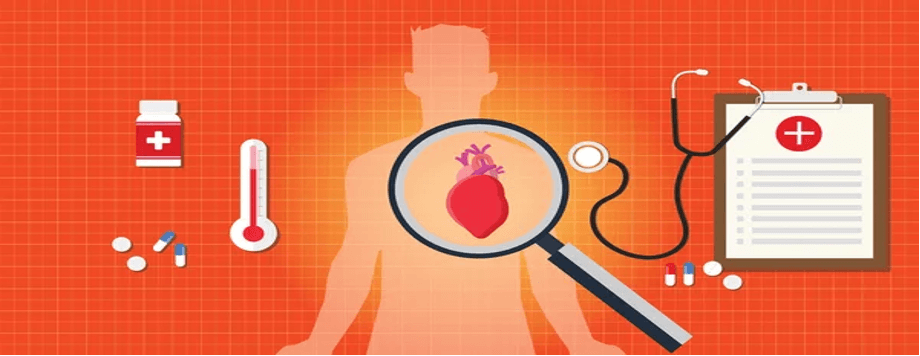
To avoid drug interactions with other drugs and food, it is important to mention a complete medication history to your doctor which includes a list of all your current and past medications. You can also diligently go on various drug interaction checker websites online to double-check the drug interactions related to the over-the-counter drug that your need to take. Listen to your pharmacist during patient counseling for drug-food interactions, missed doses, and drug spacing before or after meals.
Side effects and other risks in taking aspirin
NSAIDS are known to upset the stomach and aspirin belongs to this class drug category. It is advised to take aspirin after meals to avoid this side effect. Taking an antacid or calcium supplement can also help.

The most common side effects of aspirin are:
- Gastrointestinal problems/disorders
- Stomach discomfort
- Heartburn
- Abdominal pain
- Vomiting
- Nausea
Uncommon side effects:
- Hypersensitivity reactions (skin reactions)
Rare side effects:
- Gastrointestinal ulcers
- Gastrointestinal bleeding
- Gastrointestinal inflammation
- Drop in blood pressure
- Difficulty breathing
- Rhinitis
- Nasal congestion
- Allergic shock
- Swelling of the face and tongue
Clinical evidence

Let’s see what clinical publications have to say about the evidence of aspirin in lowering blood pressure.
Boger et al investigated the effects of captopril, aspirin, or both drugs combined on blood pressure for 7 days in 13 healthy female individuals with constant salt intake. Subjects were given a randomized treatment of the following:
- Captopril 25 mg twice a day
- Aspirin 100 mg once a day
- Both captopril 25 mg twice a day and aspirin 100 mg once a day
Post-treatment results showed that only captopril slightly decreased blood pressure while aspirin and captopril-aspirin combination had no effect.
Hermida et al conducted a randomized controlled trial study that evaluated the influence of aspirin on the systolic and diastolic blood pressure of healthy and mildly hypertensive patients. Patients were assigned to one out of the six groups defined according to an aspirin-placebo dose of 100 mg or 500 mg per day for 7 days and to the time of administration (time of awakening, afternoon, and bedtime). A small reduction in the blood pressure was observed in patients that received a higher dose of 500 mg of aspirin and a significant reduction of systolic and diastolic blood pressure when taken in the afternoon. However, the decrease in blood pressure was bigger when the lower dose of 100mg aspirin was administered at bedtime.
A prospective, double-blind study reported that the combination of losartan and aspirin showed better results in the reduction of the primary composite endpoints such as cardiovascular death, stroke, and myocardial infarction (MI) compared to the atenolol with aspirin therapy in hypertensive patients (with an age range of 55 to 80 years) with documented left ventricular hypertrophy (thickening of the main pumping chamber in the heart)
Another prospective, randomized design study investigated the effects of aspirin on the blood pressure of patients diagnosed with prehypertension. There were 97 men and 138 women with a mean age of 43.0 ± 13.0 years. Patients were assigned to three groups; (1) nonpharmacological lifestyle change including weight loss, dietary approach to stop hypertension (DASH) diet, and restriction of sodium and alcohol intake (2) same guidelines with the addition of aspirin 100 mg per day upon waking up (3) same guidelines with aspirin 100 mg per day at bedtime. No other medications were taken by any of the patients during the study. There were no changes in the blood pressure in both the nonpharmacological lifestyle change group and aspirin taken upon awakening group. However, a significant reduction in blood pressure was seen in patients that took aspirin at bedtime.
These studies showed that aspirin doesn’t have a blood pressure-lowering effect on patients without cardiovascular risks. However, significant blood pressure reduction was observed in prehypertensive/mildly hypertensive patients.
Talk to your doctor

If you are at risk of cardiovascular diseases and have hypertension, it is best to consult with your doctor if you plan to take aspirin together with your existing antihypertensive medications either for pain, fever, cardioprotection, or prevention of platelet aggregation. Your doctor would help you optimize and recommend the best treatment plan for managing blood pressure. List all your questions, medications, and medical conditions before your scheduled consultation.
Key points about the use of aspirin in patients with high blood pressure
- Aspirin is a reliable drug that is also indicated and has shown clinical evidence in its cardioprotective effect given in combination with other antihypertensive medications.
- More clinical evidence should be conducted and published to put a clear line on aspirin’s interactions with antihypertensive medications.
- More studies should also be conducted to evaluate the specific aspirin dosage for the prevention of cardiovascular diseases as well as the dosage for patients who already have a high risk and history of cardiovascular diseases.
To summarize
There are a lot of cardiovascular benefits that aspirin has to offer. Aside from preventing blood clots from clogging blood vessels (that increases blood pressure) by inhibiting platelet aggregation, low-dose aspirin reverses cholesterol transport and has antioxidant effects that provide an overall cardioprotection advantage.
Clinical evidence showed that the combination of low-dose aspirin taken at bedtime with antihypertensive medications showed a decrease in blood pressure in patients with a risk and history of cardiovascular diseases such as stroke and myocardial infarction.
Although studies on aspirin-antihypertensive drug interactions showed that aspirin counters the blood pressure lowering effect of antihypertensives, other studies showed a decrease in diastolic blood pressure in hypertensive patients treated with aspirin and antihypertensive medication. Further studies are needed to explain the mechanism of drug interaction between aspirin and antihypertensive drugs.
References
- Costa AC, Reina-Couto M, Albino-Teixeira A, Sousa T. Aspirin and blood pressure: Effects when used alone or in combination with antihypertensive drugs. Rev Port Cardiol. 2017 Jul-Aug;36(7-8):551-567. English, Portuguese. [PubMed]
- Oparil S, Acelajado MC, Bakris GL, Berlowitz DR, Cífková R, Dominiczak AF, Grassi G, Jordan J, Poulter NR, Rodgers A, Whelton PK. Hypertension. Nat Rev Dis Primers. 2018 Mar 22;4:18014. [PubMed]
- Levy G. Clinical pharmacokinetics of aspirin. Pediatrics. 1978 Nov;62(5 Pt 2 Suppl):867-72. [PubMed]
- Schröder H, Schrör K. Klinische Pharmakologie von Acetylsalizylsäure [Clinical pharmacology of acetylsalicylic acid]. Z Kardiol. 1992;81 Suppl 4:171-5. German. [PubMed]
- Fossum E, Moan A, Kjeldsen SE, Devereux RB, Julius S, Snapinn SM, Edelman JM, de Faire U, Fyhrquist F, Ibsen H, Kristianson K, Lederballe-Pedersen O, Lindholm LH, Nieminen MS, Omvik P, Oparil S, Wedel H, Dahlöf B; LIFE Study Group. The effect of losartan versus atenolol on cardiovascular morbidity and mortality in patients with hypertension taking aspirin: the Losartan Intervention for Endpoint Reduction in hypertension (LIFE) study. J Am Coll Cardiol. 2005 Sep 6;46(5):770-5. [PubMed]
- Hermida RC, Fernández JR, Ayala DE, Mojón A, Iglesias M. Influence of aspirin usage on blood pressure: dose and administration-time dependencies. Chronobiol Int. 1997 Nov;14(6):619-37. [PubMed]
- Böger RH, Bode-Böger SM, Kramme P, Tsikas D, Gutzki FM, Frölich JC. Effect of captopril on prostacyclin and nitric oxide formation in healthy human subjects: interaction with low dose acetylsalicylic acid. Br J Clin Pharmacol. 1996 Dec;42(6):721-7. [PubMed]
- Leinonen VM, Varis J, Vesalainen R, Päivärinta J, Sillanpää M, Kantola I. Low-dose acetylsalicylic acid and blood pressure control in drug-treated hypertensive patients. Eur J Cardiovasc Prev Rehabil. 2011 Feb;18(1):136-40. [PubMed]
- Guazzi MD, Campodonico J, Celeste F, Guazzi M, Santambrogio G, Rossi M, Trabattoni D, Alimento M. Antihypertensive efficacy of angiotensin converting enzyme inhibition and aspirin counteraction. Clin Pharmacol Ther. 1998 Jan;63(1):79-86. [PubMed]
- Ikeda Y, Shimada K, Teramoto T, Uchiyama S, Yamazaki T, Oikawa S, Sugawara M, Ando K, Murata M, Yokoyama K, Ishizuka N. Low-dose aspirin for primary prevention of cardiovascular events in Japanese patients 60 years or older with atherosclerotic risk factors: a randomized clinical trial. JAMA. 2014 Dec 17;312(23):2510-20. [PubMed]
- https://pubchem.ncbi.nlm.nih.gov/compound/2244#section=Formulations-Preparations
